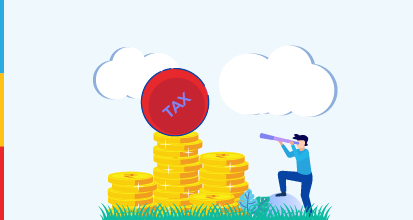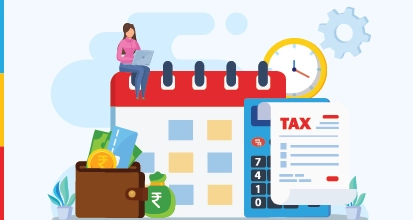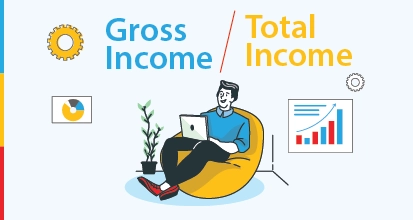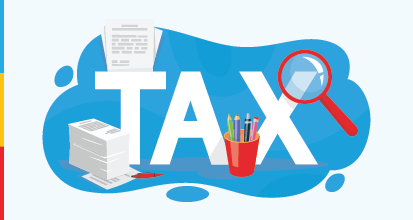2022-04-11
1328 Views
11 minutes read
Share
An OTP has been sent to your mobile number

Sorry! No records Found
Thank you for your interest in our product. Our financial expert will connect with you shortly to help you choose the best plan.
Income tax is defined as the taxes paid on the income earned by individuals and entities such as companies or partnerships. The Indian taxation system is defined as progressive, which means that the higher the amount of income you earn; the higher is the tax you are liable to pay.
There are several tax brackets, which increase in accordance with increasing income. However, the taxation system for salaried employees differs quite significantly from the taxes levied on self-employed individuals or those running their own personal business.
If you have ever wondered what is negative income tax, and whether it applies to you, you should continue reading below. Negative income tax comes into mention in a year when you have suffered losses, and not earned any income. This is applicable only to self-employed individuals, since if salaried individuals do not earn any income in a particular year, they fall into the 0 tax bracket which implies they are not liable to pay any taxes.
However, income can stem not only from one’s salary but also through their investments, whether on property or equity or even metals such as gold. If you are concerned about your investment instruments and the returns you are earning on them, you should consider investing in the ULIP Plans available on Canara HSBC Life Insurance. This Unit Linked Insurance Plan (ULIP) not only offers both coverage and returns but also enables you to invest across 7 different funds with the option to choose from 4 different investment strategies.
The Income Tax Act, 1961 lists different provisions, deductions and exemptions applicable to individuals and entities who are liable to pay taxes in India. Section 139(3) of the Act refers to the negative income tax provisions, and states that companies, firms and self-employed persons are required to file income tax returns (ITR) even if losses have been suffered by them in the year under purview.
Filing an ITR in the year you suffer losses allows you to offset those losses in the future years. This can be done by adjusting profits in the following years with losses in the current year, and furthermore, this ensures that your profits in the following year do not significantly increase your tax burden.
Click here to use - Income Tax Calculator
There are several provisions with regard to filing ITRs under Section 139(3) of the Income Tax Act, 1961. Read on below to learn about what is negative income tax, and whether you need to file ITR if you have suffered a loss this year.
Filing of ITRs is an essential duty of every Indian citizen. It allows you to maintain your taxation records in an organised way, and allows you to reap benefits in the future. However, if you are currently facing losses owing to your business, it is best to look for benefits early and invest in ULIPs available on the Canara HSBC Life Insurance website. This plan not only gives you coverage for your life and ensures your dependents are taken care of, but also allows you to make partial withdrawals in the near future to meet any unexpected financial emergencies.
Disclaimer - This article is issued in the general public interest and meant for general information purposes only. The views expressed in this blog are solely those of the writer and do not necessarily reflect the official policy or position of Canara HSBC Life Insurance Company Limited or any affiliated entity. We make no representations or warranties of any kind, express or implied, about the completeness, accuracy, reliability, suitability, or availability with respect to the blog or the information, products, services, or related graphics contained in the blog for any purpose. Any reliance you place on such information is therefore strictly at your own risk. You should consult with a qualified professional regarding your specific circumstances before taking any action based on the content provided herein.
We bring you a collection of popular Canara HSBC life insurance plans. Forget the dusty brochures and endless offline visits! Dive into the features of our top-selling online insurance plans and buy the one that meets your goals and requirements. You and your wallet will be thankful in the future as we brighten up your financial future with these plans.








